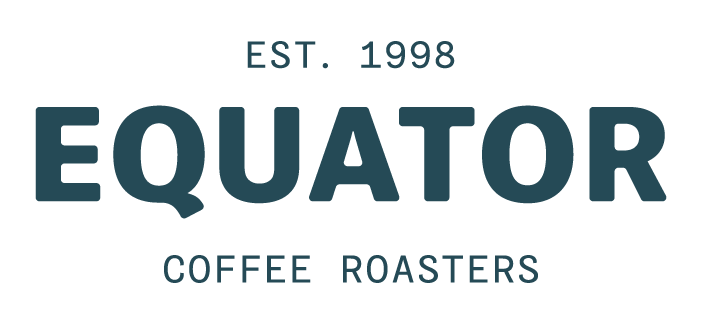- General
- Quality
General
-
What is the minimum order?
As a wholesale customer, we expect that you are able to order on a regular basis at a certain volume: 5 x 5lb bags or 5 cases (6 x 340g bags) per month.
-
What are the shipping fees?
Local deliveries (Ottawa area delivered by Equator):
Orders over $250 are delivered free of charge. Orders under $250 a delivery fee of $7.50 applies.
For the rest of Ontario (based on order amount):
$1-$100 - full shipping fee
$100-$250 - flat fee of $15
$250-$400 - flat fee of $10
$400+ - free shipping
For customers outside of Ontario:
Customers will be responsible for the full shipping fee.
-
How do I place an order for coffee (and other products)?
All wholesale orders can be placed on our website with a wholesale login. Please contact orders@equator.ca if you need further assistance.
-
When do I order? What is the deadline?
Equator sends shipments and makes deliveries throughout the week. Local businesses have two options for delivery: for Tuesday delivery, your order must be placed by Monday at 8am. For Friday delivery, your order must be placed by Thursday at 8am. For businesses who receive their orders by courier, they should expect delivery within 2-4 business days (notwithstanding any courier-related delays!)
-
How do I pay?
We accept credit cards (except for American Express), e-transfers (finance@equator.ca; “coffee” should be the answer!), direct deposit, or cheque on delivery. Our preference is to avoid credit cards (and their exorbitant fees!) when possible but we also want to make it the easiest it can be for our customers to pay!
-
Who do I contact if I receive the wrong thing?
As soon as you receive your order, please have a look and verify that it was the correct order. If there are any issues, please get in touch with us as soon as possible at orders@equator.ca or 613-256-5960 and we will work to resolve it as quickly as possible.
-
What do I do if the product is damaged in transit?
As soon as you receive your order, please have a look and verify that everything is as it should be. If there is any damage, please get in touch as soon as you can (orders@equator.ca or 613-256-5960) and we’ll find a solution!
Quality
-
What is Fair Trade coffee?
At its basic core, Fair Trade is an alternative way of doing business with the goal of improving life for the producer who has historically gotten the short end of the stick to put it mildly. Improving life can mean a variety of things but better trading conditions, higher wages, and improved social and environmental standards are a good place to start. Fairtrade Certification is the international system that uses Learn more here
-
Where does Equator coffee come from?
We purchase coffee from over 20 different producer groups located in a wide range of coffees located on or around the equator (hint hint!) From Mexico to Colombia, Ethiopia to Indonesia, our warehouse is filled with fair trade organic coffee that has traveled thousands of kilometers and passed through countless hardworking hands. For specifics (producer profiles, contracts, invoices, shipping docs), please visit www.fairtradeproof.org.
-
How is coffee roasted?
Roasting coffee is a cross between science and art. During the roasting process, the time and temperature for each batch is measured and recorded by the roastmaster on computer software. This is to determine the "roast curve" (think of it as a recipe) for whichever origin he might be roasting. We roast each origin differently, depending on its flavour profile, its moisture content, the density of bean, and other aspects of its composition. It's up to the roastmaster to determine what the optimal conditions are (temperature, time, airflow, etc) for each coffee, hence the name "master". Establishing a roast curve allows us to guarantee consistency and quality, time after time. Many of the roast curves for our classic blends date back to when Craig first got started on his 10kg Toper. But two roaster upgrades and over twenty up-and-down years later, we’ve made a lot of changes and improvements.
-
Which type of grinder should I buy?
There are grinders for every budget, and every level of coffee lover. Ideally, you would go with a burr grinder, hand or electric. Burr grinders do a much better job at grinding coffee consistently (i.e. same size particles which means same level of extraction which means smoother coffee). A blade (the zip-zip ones that beat the beans around until they pulverized) grinder will do in a pinch but doesn’t do as well on the consistency front. Learn more about our top picks for coffee grinders here.
-
How fresh is fresh?
Coffee tastes best when it’s fresh - the fresher the better! Ideally, you’re getting your beans fresh The coffee will taste great within a month of roasting, but after six weeks it starts to lose it’s sweet and smooth notes and becomes bitter and stale. Treat coffee like a loaf of bread, not a shelf-stable product.
